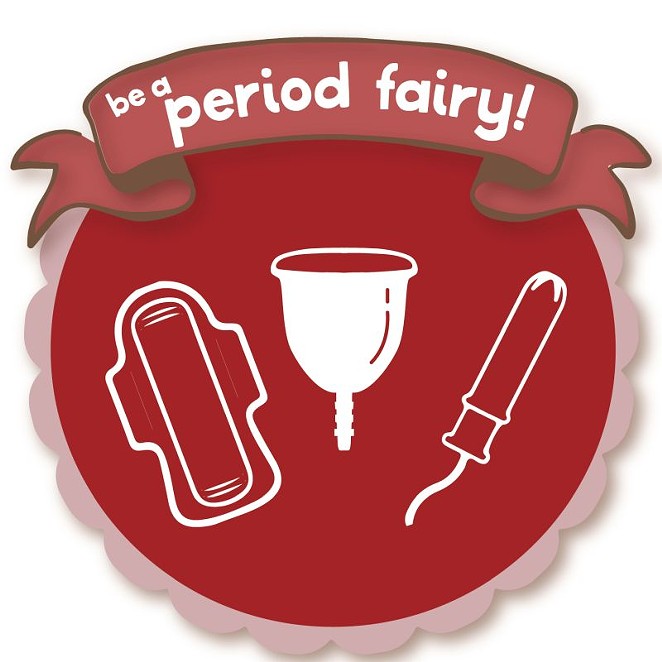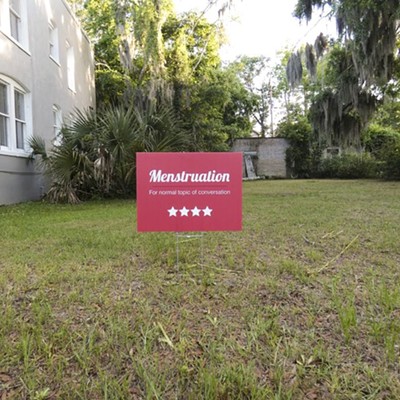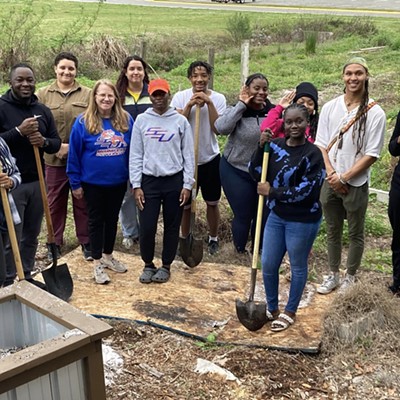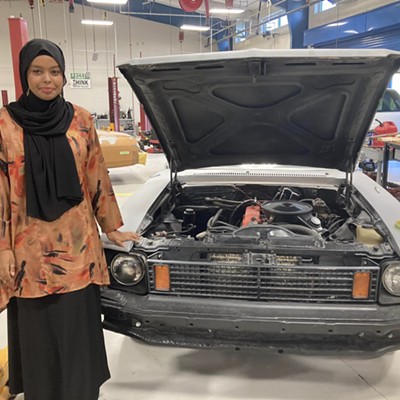"VISIT from Aunt Flo." "That time of the month." "Mother Nature’s gift."
Those are just a few of the terms used to “politely” describe bleeding from the vagina that happens about once a month, as a normal part of the menstrual cycle. It is also known as having a period.
52% of Georgia’s population will experience this female function starting at around age 12, and it will last through menopause. The average woman will have their period for over 3,000 days of their life.
The cost of pads, tampons, and menstrual cups alone will run a woman about $6,000 over the years she menstruates — and right now Georgia applies a luxury tax to those items.
But there is a bill sponsored by Representative Debbie Buckner (D-137) in the Georgia state legislature that aims to reduce the tax on these necessary medical devices.
“These items are FDA Class I and Class II medical devices, and the tax code needs to be adjusted to reflect that fact”, said Buckner.
A similar bill was proposed by Buckner last session, but it never got to the House floor for a vote.
So what has changed this year? There are more women than ever before serving in the Georgia state legislature - 15 Senators and 57 Representatives, for a total of 30% females. In addition, the full support and resources of the Junior League of Georgia has also propelled the momentum of this bill.
Many other groups have also backed this bill, such as Georgia Women, and Project Period Savannah. However, anyone who has watched “I’m Just A Bill” by Schoolhouse Rock! knows that there is a long way to go before this bill becomes a law.
Some lawmakers have told Buckner that they wished that they didn’t have to talk about periods at the State Capitol because it’s undignified. But that hasn’t stopped Savannah Rep. Ron Stephens from giving his full and early support to Georgia HB 8. Stephens was the second House member to cosponsor the bill.
“To tell you the truth, it just never crossed our minds. It was one of those things that nobody ever placed in front of us,” said Stephens (R-164), the first Republican to sign on as a cosponsor.
Buckner said, “Ron Stephens is a good friend and he understands completely that this was an oversight that needs to be corrected. When the tax code was originally addressed, the people in the room were all men and they never thought about these medical devices.”
Jessica Thomas, Junior League of Savannah President, emphasizes the importance of Georgia HB 8:
“The Junior League of Savannah, along with our counterparts throughout the state of Georgia, support HB8. The Junior League’s role since its inception in 1908, has been to advocate for women and our local communities,” she says.
“We recognize that women around our state, and locally, are carrying an extra tax burden simply for being born girls and women. We also know that classroom success is a high priority in Savannah, including K-12 education performance for students in the communities we serve. Menstrual hygiene products are basic necessities, and the inability to access them can often affect a student’s ability to attend school and participate in society with dignity. By supporting this bill, we hope to help lessen this barrier for young girls in Georgia.”
Stephens believes the state needs to go even further.
“We need to make this a total exception. It doesn’t need to be a thing where the state takes it’s 4% off and then the locals continue to tax this stuff. If it is still going to have a 3% tax, it helps a little (to exempt the state 4%), but not as much.”
Stephens plans to push for a total tax exemption when the bill gets to the Ways and Means Committee, where he serves as the subcommittee chair.
“I want to see some of these cities, counties, and school boards get up and try to defend why this is not the right thing to do [eliminate the local 3% tax]. It’s one of those things that we might have to shame people into supporting it,” he says.
“If we are going to exempt the tax on food, which is supposed to make it easier on those families, then the same logic especially goes for those families who can’t afford these products to give them some sort of relief,” continued Stephens. “Other states have done it and we are just lagging behind.”
According to the group Period Equity, currently there are 14 states that don’t tax menstrual products.
So where do our other members of the Chatham delegation stand on HB 8?
“I don’t see anything wrong with it,” affirmed Rep. Bill Hitchens (R-161). “I can’t imagine why I wouldn’t vote for it.”
“Men sometimes don’t realize that there are extra expenses that women incur every month,” stated Rep. Craig Gordon (D-163). “So why should women be taxed for that?”
“I will vote for it if it comes to the floor,” committed Rep. Jesse Petrea (R-166). “I am a tax cutter to the core, you are never going to find me opposed to tax cuts.”
Rep. Carl Gilliard (D-162), Rep. Mickey Stephens (D-165), and Sen. Lester Jackson (D-2) also fully support HB 8.
Before the session started, Sen. Ben Watson (R-1) was noncommittal, but said, “If we [the state] are going to give up ours [4% tax], then the locals should give up theirs [3% tax]”.
Some legislators have hedged their support of HB 8, wondering what would be next and specifically citing baby and adult diapers. Buckner address their concerns.
“This bill is very narrowly written, these are classified by the FDA as Class I and Class II medical devices, diapers are not classified by the FDA as a medical device.”
Period poverty is a real issue in Georgia. Buckner proclaimed, “Month-after-month people should not have to scrounge for what they need. Girls should not have to miss school because they don’t have proper equipment or supplies, not in this day and age.”
Ron Stephens concurs, “It’s the right thing to do, it’s time. So many things shouldn’t be partisan, and this is one of those things.”
So what needs to happen next to pass HB 8 into law?
The bill needs to get out of the House Ways and Means Committee and pass the Rules Committee - then go to the House floor for a vote before Crossover Day on March 7.
After that, the Senate needs to pass it out of their Finance Committee and take a floor vote. If there is any disagreement in the language, a Conference Committee made up of three House members and three Senate members will have to settle and differences and determine the final language.
Then it will have to pass both chambers again before midnight on Sine Die day which is scheduled for Tuesday, April 2 — otherwise it dies for this year.
To help locally provide pads and tampons to homeless women and public school girls, go to Project Period Savannah on Facebook.
Michelle Pompei with Project Period Savannah explains:
“Project Period is continuing to provide pads and tampons to all middle and high schools in Chatham County. We have a Facebook page that folks can reach us with a link to an Amazon Wishlist. Folks can also message us there for a drop off location,” she says.
“We recently were awarded $800 from Joined In Giving, a local group of folks that collectively decide on how to give their money. They’ve never unanimously agreed until they decided to donate to Project Period. We’re really proud to be the recipient. 100% of this money will go to menstrual products,” says Pompei.
“We’re open to working with other existing organizations that might need period products — we’ve donated to organizations that work with homeless folks and Food Not Bombs.”































